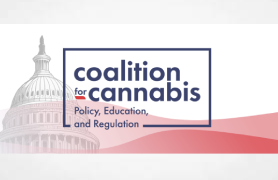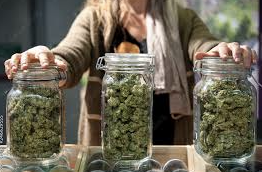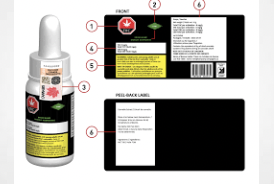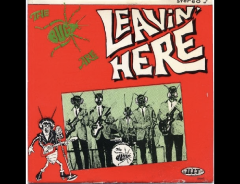This article is somewhat like reading some arcane Pre-Enlightenment document concerning the things people used to worry about such the pros and cons of various approaches to animal husbandry as determined by passages of the bible and led by the current thought in the vatican
If you believe parts of a text written by English clerics of the 16th century should determine your views towards cannabis then this is the article for you.
Here’s the introduction
Abstract
As states continue to decriminalize marijuana and usage escalates in American culture, Christians must increasingly navigate their associations with the drug. The various implications of marijuana use are much discussed, but the true legal landscape is often misunderstood. Despite recent changes in individual state laws, it is still a federal crime to possess, use, or sell the drug anywhere in the United States. This article argues that—aside from unrelated social, medical, ethical, and spiritual considerations—Christians must abstain from either medical or recreational marijuana use because they are obliged as a matter of faith to obey federal authorities.
Cannabis is the most used psychoactive, or mind-altering, drug in the world.1 In the United States, it is “by far the most commonly used illicit substance,”2 and alcohol is the only regulated substance that is more widely used.3 The term “marijuana” refers to the dried leaves, seeds, and stems of cannabis plants, which people can consume in a variety of ways to achieve conscious altering effects.4 Inhalation through smoking is the most common method, but ingestion of marijuana-laced edibles and beverages and vaporization are becoming increasingly popular.
Social attitudes regarding the consumption of marijuana have changed dramatically in recent decades.5 Along with this broader shift, there has been a notable increase in support among people professing Christian faith for decriminalizing marijuana.6 For instance, in 2012, Pat Robertson said, “I really believe we should treat marijuana the way we treat beverage alcohol.… I’ve never used marijuana and I don’t intend to, but it’s just one of those things that I think: this war on drugs just hasn’t succeeded.”7 This sentiment is not new, and Robertson is not alone.8 Americans are using marijuana more frequently than they used to, and marijuana-related industries are growing exponentially. These changes will inevitably influence Christian churches just as they influence society at large. Although sermons, Bible classes, and small groups do not frequently discuss marijuana, the conversation is long overdue given the current climate.
A comprehensive discussion of marijuana use is multi-faceted and includes, among other things, possible medical benefits, health risks, potential mental and psychological consequences, and a variety of social costs, as well as sometimes complex ethical and moral determinations. However, while people continue to research and debate these matters, they often do so without a full appreciation for the legal landscape. Yet, the legal aspects of marijuana must be a primary consideration in any responsible discussion. This is especially true for Christians, who are bound as a matter of faith to obey proper human authorities. Still, much of the current dialogue about the propriety of Christians using the drug evinces a fundamental lack of awareness about its legal status.9
The legal landscape surrounding marijuana has evolved rapidly, and future changes in federal regulation might afford greater liberties. If, or perhaps when, the federal government follows the several states in deregulating the drug’s possession, use, and sales, then submission to God and government may look different than it does right now. At that time, the intricate complex of medical, mental, and moral considerations typically emphasized in contemporary discussion may well become dispositive. However, the benefits and detriments of marijuana are secondary or tertiary concerns for Christians and all law-abiding residents in the United States since federal law currently precludes them from having, consuming, or distributing marijuana for either recreational or medicinal purposes.
This article briefly discusses the biblical ethic of Christian respect for human authorities, the American system of dual sovereignty, and changes in simultaneous federal and state regulation of marijuana. It then concludes that Christians are not currently free to possess, use, or supply marijuana because any such conduct constitutes a federal offense.
1. The New Testament Ethic of Submission to Government
A person’s decision to consume marijuana will be influenced, in some part, by the person’s appreciation—or lack of appreciation—for human government. Christians’ respect for political authorities and the rules they promulgate is informed by a New Testament ethic of support for, and submission to, government. The apostle Paul repeatedly reminds readers of this duty. For instance, in 1 Timothy 2:1–2, he says, “First of all, then, I urge that supplications, prayers, intercessions, and thanksgivings be made for all people, for kings and all who are in high positions, that we may lead a peaceful and quiet life, godly and dignified in every way.”10 In Paul’s estimation, the rules and restrictions issued by government are a necessary part of ordering society for the general welfare, and the authorities are to be supported, among other ways, with prayers.
The Christian’s duty, though, involves more than prayers for human rulers. Paul directs his readers to obey government authorities. In Titus 3:1, he instructs Titus, “Remind [the Cretans] to be submissive to rulers and authorities, to be obedient, to be ready for every good work.” In the apostle’s most extended discussion on the matter, he urges,
Let every person be subject to the governing authorities. For there is no authority except from God, and those that exist have been instituted by God. Therefore whoever resists the authorities resists what God has appointed, and those who resist will incur judgment. For rulers are not a terror to good conduct, but to bad. Would you have no fear of the one who is in authority? Then do what is good, and you will receive his approval, for he is God’s servant for your good. But if you do wrong, be afraid, for he does not bear the sword in vain. For he is the servant of God, an avenger who carries out God’s wrath on the wrongdoer (Rom 13:1–4).
Read full article

















